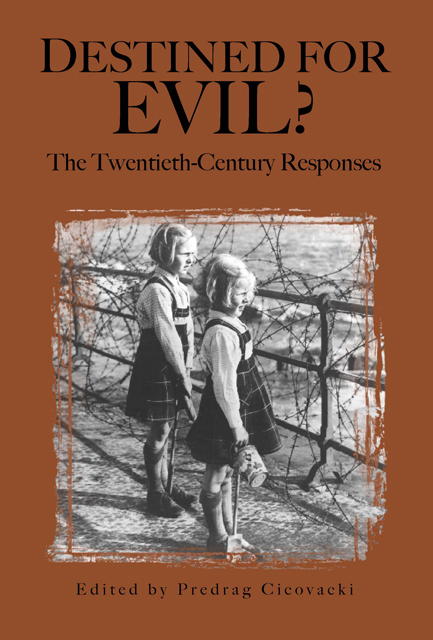Book contents
20 - Evil as Mystery: Primal Speech and Contemporary Poetry
Published online by Cambridge University Press: 17 March 2023
Summary
But keep your eyes below us, for coming near Is the river of blood—in which boils everyone Whose violence hurts others.
—Dante, The InfernoAs someone with little experience writing systematically about the problem of evil, I find Gabriel Marcel's distinction between “the problem” and “the mystery” of evil very helpful. Although the phrase mysterium iniquitatis has gotten a rather bad press recently, speaking of evil as mystery provides more direct access to charting an anatomy of evil, it seems to me, than speaking of it as “a problem.”
The phrase “the problem of evil” distances me from the concept, framing the discussion as a kind of academic game far removed from my daily life. The phrase “the mystery of evil,” by contrast, speaks directly to “the actual business of living,” as John Hick says, that is, to the immediate and absorbing task of trying to live a moral or spiritual life in times like the present, so replete with depression and despair. Focusing on “the mystery” should not exclude “the problem”; it merely seems more pertinent in a nuclear age, particularly during wartime, particularly for anyone who regards nonviolent social change as essential to the world's survival.
Depression and even despair are understandable and rational responses to the present state of affairs, not only since September 11, but since the nuclear weapons impinged on our daily lives. The fact that the full implications of this condition tend to be ignored much of the time by institutions and intellectuals responsible for our education only deepens the spiritual malaise.
As in much of the modern era, our moral compass spins randomly in a time of rapid scientific and technological change, as ethicists and others responsible for moral leadership lose their way. American theologians and clergy, trooping to the colors as cluster bombs, daisy cutters, and other weapons of massive destruction fall on innocents in Afghanistan, is only the most recent evidence of moral confusion and cop-out. Having long chosen “the lesser evil,” as Hannah Arendt said on one occasion, they—and we— forget much of the time that we are still choosing or at least tolerating evil.
- Type
- Chapter
- Information
- Destined for Evil?The Twentieth-Century Responses, pp. 241 - 248Publisher: Boydell & BrewerPrint publication year: 2005

